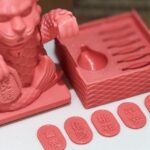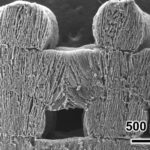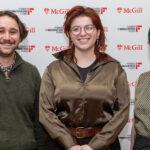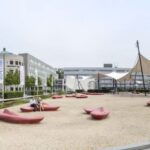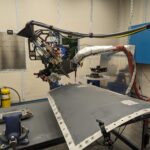In a new study, orthopedic specialists at NHS Golden Jubilee, in collaboration with the University of Strathclyde, have pioneered the integration of 3D printing with hip and knee replacements, utilizing patients’ own biological cells.
The research explores the innovative application of 3D bioprinting, incorporating patient stem cells and essential elements like calcium to create ‘scaffolds’ crucial for regenerating bone defects. The motivation behind the study was to address the challenges patients face with significant bone loss due to conditions like arthritis, cancer, infection, or trauma.

The research explores the innovative application of 3D bioprinting, incorporating patient stem cells and essential elements like calcium to create ‘scaffolds’ crucial for regenerating bone defects. Gareth Turnbull, the primary author and clinical research fellow at NHS Golden Jubilee, emphasizes the motivation behind the study, addressing the challenges patients face with significant bone loss due to conditions like arthritis, cancer, infection, or trauma.
The core concept involves leveraging 3D printing technology alongside biological components, such as patient stem cells, to produce live biological implants. These implants, when inserted into patients, have the potential to seamlessly integrate and heal within the body, offering a transformative alternative to traditional metal implants prone to wear and loosening over time.
The study, a pivotal component of Mr. Turnbull’s Biomedical Engineering PhD at the University of Strathclyde, showcases additional breakthroughs in the team’s utilization of robotics in joint replacements and enhanced post-surgery recovery pathways.
“Innovation that benefits patients is always high on our agenda and this award highlights this work,” said Professor Jon Clarke, orthopedic research lead at NHS Golden Jubilee.
“Joint replacements, like any mechanical devices, will eventually wear out, often within the lifetime of the patient. Biological constructs offer the potential for longer term survival, which could avoid the need for further operations.”
The academics highlight the patient-centric benefits of this approach, emphasizing the potential for biological implants containing the patient’s own cells to grow and become an integral part of their body. This not only avoids the shortcomings of artificial implants but represents a significant stride in long-term survival, potentially obviating the need for further operations.
Source: glasgowtimes.co.uk
Come and let us know your thoughts on our Facebook, X, and LinkedIn pages, and don’t forget to sign up for our weekly additive manufacturing newsletter to get all the latest stories delivered right to your inbox.


